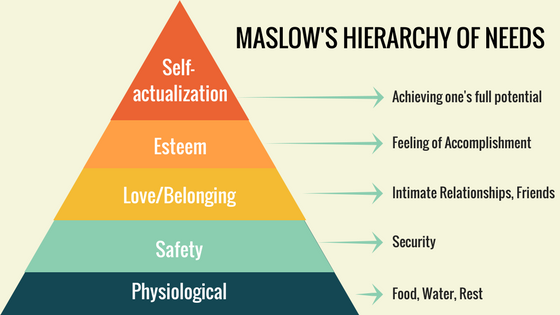Over the march break, I built 4 houses for poor families in Riverton city, Jamaica’s municipal dump, with a Canadian mission group. Here’s what I learned.
TL;DR
- Genetics is your vessel. Environment is your fuel.
- Transparency and honesty comes with having less. Poor embrace change — Rich don’t.
- Community matters more than social or material hierarchy.
- Be likeable > being exceptional. Likeability comes from being respected for your grit, honesty, vulnerability, humility.
- Internal mindset dictates your happiness — not external factors. Climbing a hierarchy is an external factor that won’t guarantee your happiness.
Genetics is your vessel. Environment is your fuel.
You are born a soup of DNA. That DNA dictates how competent you are at certain things.
Einstein learned math like any other kid, but other than dedication and extreme curiosity, what made him exceptional was the structure of his brain. He had a less voluminous but denser brain.
Your social and physical environment builds your decision making circuits. You learn what works and what doesn’t based on the outcome of action. You’re not born knowing fire will burn you, it takes time for you to learn.
Your environment It also shapes your morality and sense of justice. Negative and positive experiences show you what works and what doesn’t. Over time, you build a sense guilt when you hurt people, because it hurts your chances of having positive future interactions with them.
From that morality, you develop a will to do some things, and avoid others. I probably won’t want to push my grandma over, but I do want to work hard to make my own company so that I can impact people positively… All from the interactions and positive feedback loops I’ve had with my environment.

If there aren’t negative repercussions for harmful actions, which happens a lot more often in poorer countries where there is less authority and emphasis on reciprocity, then my goals and sense of justice could become corrupt.
I’d be motivated by my self interest, and wouldn’t consider the interest of others or the potential from future relationships. This works fine in the short term, but in the long run I screw myself over and loose communal trust.
When you look at the most successful people, most of them come from rich countries like North America and Europe. It’s not only that they have access to housing + food and must prioritise their ambition to feel fulfilled, but they’ve often been taught the value of reciprocity and social validation for doing good.
Transparency comes with having less.
In Riverton city where ~3000 Jamaicans live, you’d often receive blunt criticism that came off as inconsiderate. Questions like “why are you fat?” or “why is your face bumpy (acne)?” and “your nose is really big” seem disrespectful to us, but to them that blunt curiosity is typical.
It ties back to Maslow’s hierarchy of needs.

For the people of Riverton, the most basic needs like security and shelter haven’t been met, so they don’t value needs like “achieving one’s full potential” and “self esteem” as much.
If we look at life like a role playing game, you could say that every one is trying to optimise their decisions through gaining knowledge on objective realities. To climb Maslow's pyramid, we need to understand our environment and how to manipulate it to acquire resources. We crowd source our experiences and knowledge to mutually improve our state of being. If no one told the truth, we would draw inaccurate conclusions that would harm us when we try and apply them. Ex: a tribe member who cracks walnuts with stones tells the rest that the best way to crack a walnut is by slamming it against your head. The story only goes down hill from there.
In poorer countries closer to the bottom of the pyramid, honesty is valued because it gives you more knowledge on reality, in other words a better chance of understanding the world and getting yourself out of poverty.
But, since we Canadians already have our basic needs met and have lots of freedom and flexibility, we would rather avoid the truth because it makes us vulnerable to reality, and could give us a higher chance of failure.
Ex: an accountant works for a big bank. But secretly, he hates his job and would rather take up a career in music. Because an accountant’s job is more secure, he'll lie and tell himself + his friends that he doesn’t mind his job when really it’s eating him up inside.
The same goes for research, medicine, or any other stem field. Long term or capital intensive projects without any positive results can ruin the reputation of the researchers and executives who approved the project, so often times results are inflated.

If instead he was born in a very poor country and had to find a job or die on the streets, he would probably be taking on a job he doesn't like, but would be transparent about his financial situation with his social circle, because they could help out.
If you’re born into a family with less, you’ll be more inclined to be honest and transparent with other people about your needs and your desires, because you don’t have much to lose.
Poor embrace change — Rich don’t.
When you're needs are met, there isn't a pressure to adapt.
The largest and oldest companies in the world (TD bank, BIBC, Ford, etc.) avoid innovation because it increases the changes of failure. They have been successful for such a long time that any new executive with succumb to the pressure of maintaining that success vs trying to increase it.
People who lack resources embrace change because it increase potential for success, whereas people who have abundant resources don’t like change because they enter unfamiliar territory that increases their potential for failure.
For context, If you where living off 1$ a day, it would be easier to convince you to take up something else that could potentially make you more money. But if you’re already set on a 100K salary, it’s much harder.
Community matters more than social or material hierarchy
At the root of decision is emotion, an internal compass that helps interpret external stimulus form the 5 senses.
Emotion is essential for 3 reasons:
→ Logical Shortcuts
If I get punched in the face, it’s probably smarter for me to react with an instant negative emotion than to reason out in my head the implications of why that’s a bad thing. Emotion let’s us skip a lot of the decision making and saves us plenty of brain power.
→ Perception adjustment
The universe can be split up into 2: the objective reality and the subjective reality. We see the universe through a filter of senses, so we have to make a ton of assumptions. I have to assume that no one’s going run me over when I cross the street, that my house will still be there when I come home, that I won't be struck by lightning. When something disrupts our assumptions, we react negatively. It's your emotions attempting to change way you’ve been perceiving the universe.
→ Primal motivation
Sex doesn’t make sense. Emotions give us the incentive to do it, but fundamentally reproducing isn't a rational act. So far as we know, there isn't one purpose that explains why we should reproduce. If we where purely rational beings, it’s not impossible to think that we wouldn’t be motivated by sex, love, friendship, etc. Emotion makes us to want things that benefit our species over the individual.
Emotion is in charge of whether you enjoy or don’t enjoy being. In North America, it’s easy to tie positive emotion to expensive and high quality material, but most of our desires come from mimetic theory.
If that Gucci belt was selling for 30$ and it wasn’t perceived as a luxury item, you probably wouldn't buy it.
Value is subjective, but we act as though the price we see is the objective value we gain. Most of the time it’s not, and when you entangle your reward systems around hierarchies of value (consumerism), it becomes very difficult to feel satisfied.
What makes you happy? In Jamaica, some of the happiest and welcoming people where those in Riveton city.
For 3 reasons:
- They had a tightly knit community and could count on each other. Millions of years ago, those same communities lead us to survive longer, so it’s still ingrained in our DNA to value community and get positive emotional response from it.
- They didn’t have many material possessions, and prided themselves on their personality and values over their things.
- They had big goals and ambitions. Everyone I talked to said they wanted to make it big. They where always on the grind and consistently put in work.
It’s not that having lots wont make you happy. It’s that endlessly chasing the top of material hierarchy while sacrificing close relationships wont.
Be likeable > being exceptional.
We’re deeply driven by emotion. It doesn’t matter if you’ve built a space ship and flown to mars, if you’re a selfish and unlikable person, people wont want to be around you and you'll feel miserable.

This hit me when I was talking to our bus driver.
He drove us around Jamaica during our trip, and was always positive and funny. Turns out though, he only makes about 6K CAD a year, and got a brain tumour a couple months ago (Jamaica doesn't have free healthcare).
Because we had built a strong relationship with him over the trip, and genuinely liked him as a person, we gave him enough money to pay off half of his cancer treatment bills. He wasn’t necessarily an exceptional person (except for being an amazing driver), but because we liked his personality and his values so much, we felt like he was a part of us and that it was the right thing to do.
At the end of the day, it’s the respect you get for your grit, honesty, vulnerability, and humility (to name a few) that makes people want to help you. It doesn’t matter what you’ve done. It matters you you are.
Internal mindset dictates your happiness — not external factors.
External factors are a great way of tangibly measuring progress. Being able to bench 100lbs when I could only do 70lbs the month before let’s me track how close I am to being on track to success. But the physical world isn’t everything.
I like to think of ambition as 2 things:
- External Ambition → driven by external progress
- Internal Ambition → driven by internal progress.
Your external ambition is a good way of tangibly proving you're making progress, but it’s the internal satisfaction and feeling of fulfilment you get from internal ambition that gives you the most happiness.
Mind > Matter.
It takes external actions to progress internally, but the key is not prioritising external hierarchy (social status, material value, etc.) over internal improvement.